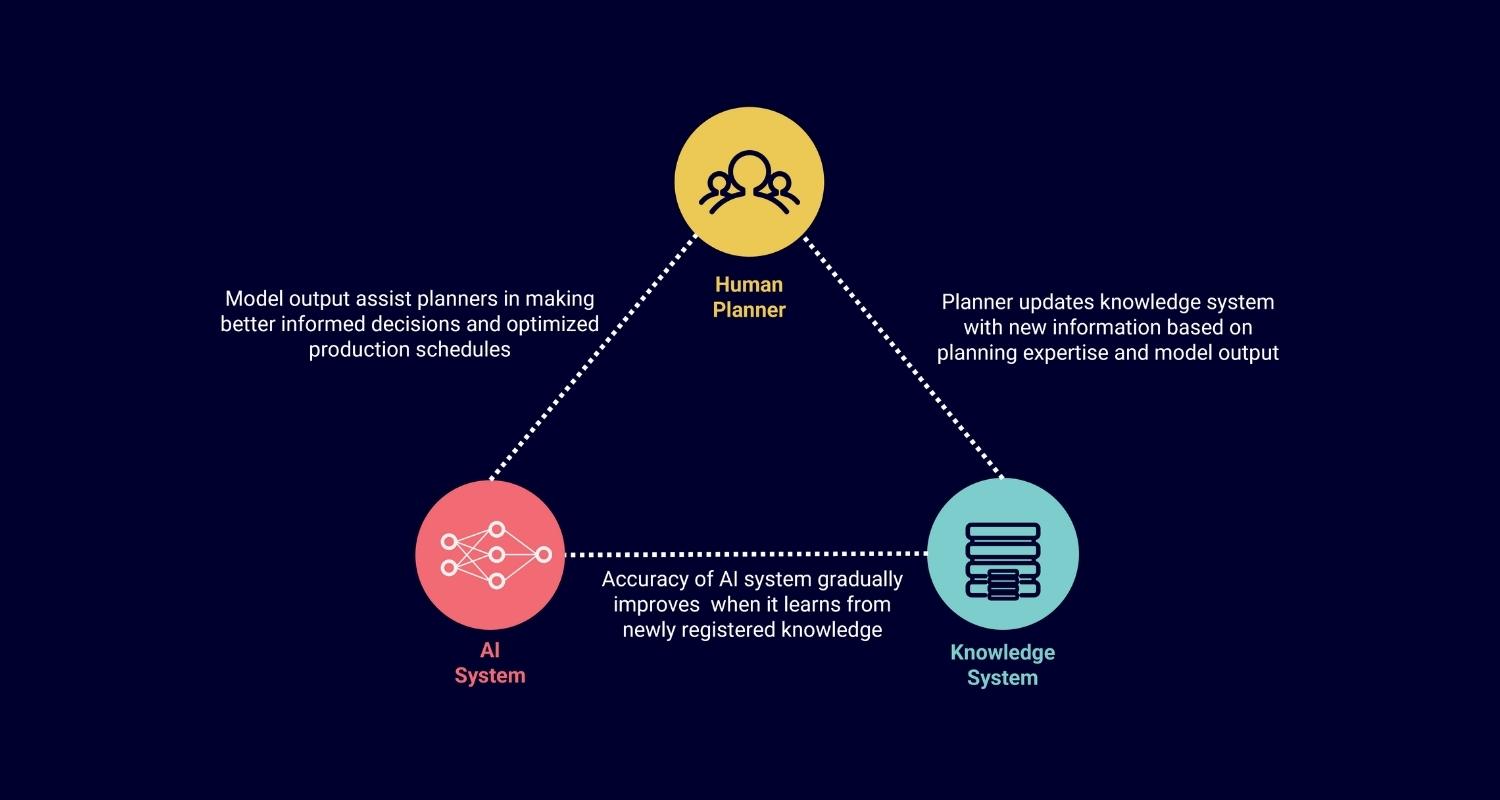Production Planning & Scheduling
Digitize Your Planning Knowledge
Four enablers for accelerated production planning & scheduling
Manufacturing companies that intend to lead the way in digitizing their planning and scheduling efforts and want to make a lasting impact with AI have to overcome some organizational and technical challenges. Happily, technology is rapidly evolving, and new platforms and tools are coming on the market that provide the necessary technical building blocks to address these challenges and make it possible to embed analytics in every aspect of the day-to-day or even minute-to-minute decision making processes.
In a series of blog posts we show what it takes to successfully implement a digitized production planning and scheduling process at scale. We identified four key enablers that will help planners in making better, faster, and smarter decisions. In a previous article, we focused on the added value of building a digital prodution twin. In this post we look at the importance of knowledge retention and adoption.

Four enablers for accelerated production planning & scheduling - step 2
Sharing experience is key to move forward
When we talk with production planners, we are always struck by the sheer level of practical experience at their disposal. This is because many, if not most, planners are seasoned professionals. They have either been in the role for some years, or previously worked in a related department, such as production or customer service. Many experienced planners are operating based on judgement, supported by only a home-brewed Excel sheet or no digital tools at all. They can do this because they know the ins and outs of the production process and have extensive hands-on experience.
To be of value, knowledge must be shared.
And this works – up to a point. But when a company starts to grow, and complexity begins to mount, even a veteran planner can get lost. Worse still, when such an employee leaves the company, all the experience, knowledge, and carefully honed intuition leaves along with them. This is a strategic risk that should be avoided at all costs and this is exactly why using a knowledge system is a necessity.
Record what you know in an intuitive way
When building a production schedule, experienced planners have a comprehensive view of potential bottlenecks, optimal production sequences, and operational boundaries. They know, for example, when they can stretch the usage of certain assets to maintain production flow. Planners should be able to record this knowledge in an intuitive way and make it accessible to their peers. This will prevent the loss of vital expertise when they leave the company, and enhance knowledge adoption more generally. It will also help when onboarding new hires, and allow for more consistency in the way plans are made, eventually improving the quality of production schedules overall. In time, it might even be possible to generate AI-driven recommendations for planning best practices in specific scenarios.
Building up a knowledge base, is the foundation for any digital transformational journey.
Unlocking the potential of all expertise stored in a planner’s head, and gradually building up a knowledge base, is the foundation for any digital transformational journey.
Why keeping the Planner 'In the loop' is important for AI
The capacity of computers to solve planning problems far exceeds that of the human brain and this is where algorithmic advancements and powerful CPU's comes in handy. Some fear these technological innovations. We say that technology is an enabler, not an enemy.
Technology is an enabler, not an enemy.
Ensuring that algorithms get the right inputs is not possible without the help of experienced production planners. Capturing all planning expertise in a knowledge system is essential for building a loop between human planners and AI systems. The more an AI system can learn from planners, the better and more comprehensive its recommendations become to support the planners in their role.
A successful digital transformation always relies on people. Technology on its own will not do the job!
In an upcoming article we look at how to digitize your way of working as a planner.
Want to know more?Download our whitepaper on how to accelerate with production planning & scheduling.


